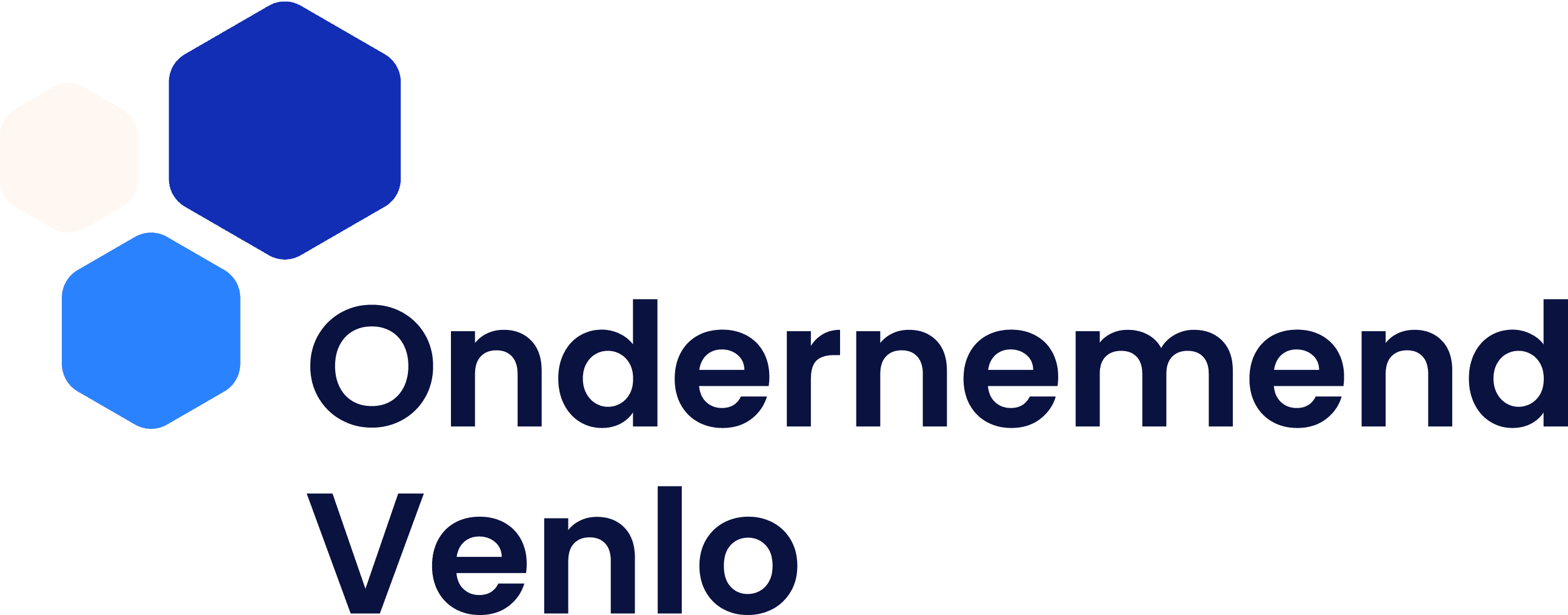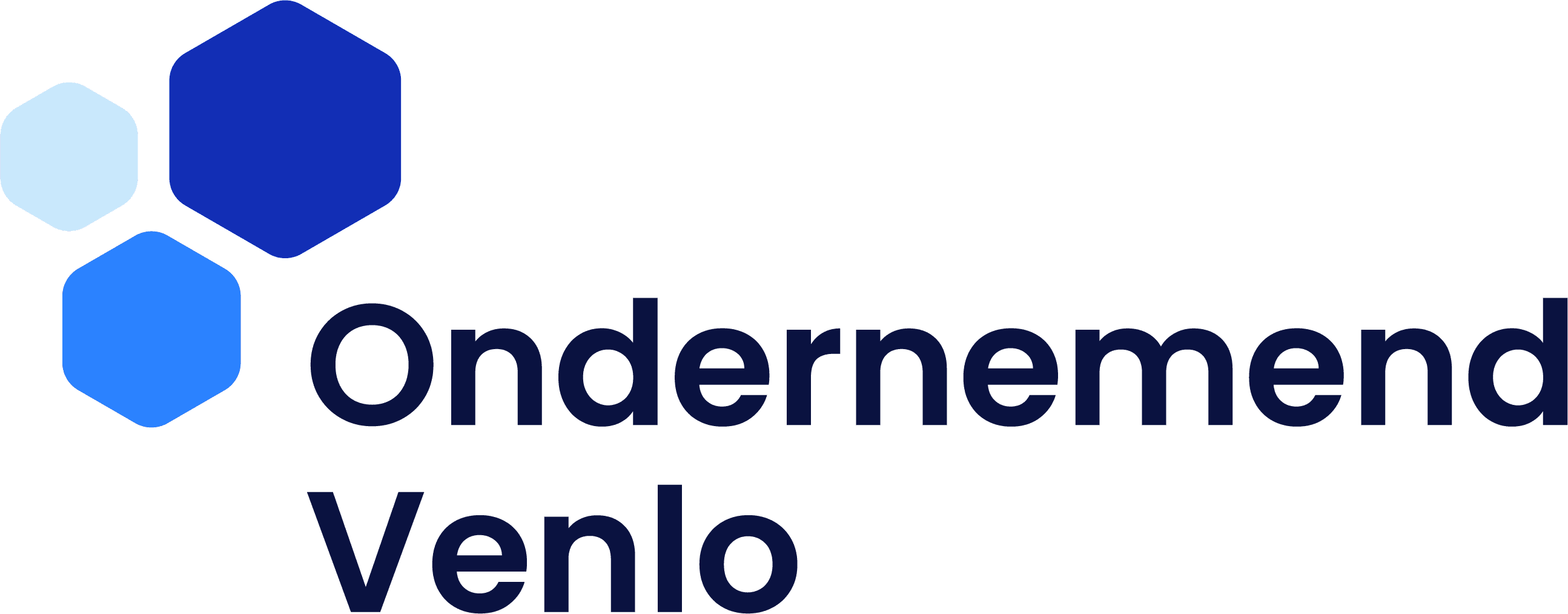The Venlo Lifestyle Agreement is the local translation of the National Sport Agreement and National Prevention Agreement. The aim is to get residents within the municipality to inspire and facilitate people to live more vital and healthy lives. A budget has been made available by the central government for this purpose. For residents, but also for businesses.
Project leader Tijn Wabeke and process supervisor Nicole Nijholt are intensively involved in the Venlo Lifestyle Agreement and are guiding the process of arriving at a good application. "However, it is not that we drop a ready-made plan and then the company has sustainably employable employees. The organisations themselves have to air their ideas and wishes," said Nijholt, whose background as a self-employed entrepreneur led her to the team of this Lifestyle Agreement Venlo hired. "Our role is to liaise between the applicant and the steering committee," Wabeke adds. "They handle the initiatives and assess whether implementation funds will be made available."
More than sports
There are eight ambitions within the Venlo Lifestyle Agreement. One of them is sustainable employability of employees of companies. Business owners themselves are also part of the target group. The overarching objective is to improve lifestyle during working hours. Every organisation has its own needs and goals; every workplace, location or size is different. Wabeke: "Healthy living is more than sports. Nutrition, mindset, a pleasant working environment; it is so much more." From companies, Wabeke and Nijholt mainly get the question: 'What's in it for me?' Entrepreneurs ask for examples and how they can implement the agreement within their own organisation. "We visit companies, share info on social media, organise challenges to come up with their own ideas, talk about them with partners like SME-Limburg and, of course, there is the website which will soon also feature its own E-zine," Nijholt said. "But above all, companies have to launch the first initiatives themselves."
Engagement
She herself spoke earlier with several people from Entrepreneurial Venlo, such as Park Manager Lidy Rutten, about the importance of the agreement. "Through those contacts, we try to establish lines laying and networking. But companies may make themselves heard even more." It is mainly civil society organisations, associations, schools, village councils and citizens' initiatives that have launched ideas so far. Wabeke: "We pay attention to the sustainability of the idea and What connections a company makes with its immediate surroundings, sports association or community organisation. It should add value, not just for the entrepreneur. This is how commitment is created. An optimal connection makes an idea stronger. If a good idea has emerged from the community, we step in and assess whether financial sustainability, for example, has been considered."
'We visit companies, share info on social media, organise challenges to come up with ideas ourselves, talk about it with partners, but above all, companies have to launch the first initiatives themselves.'
Request
An application, for which the amount is up to €5,000, begins by filling in an online form. The steering committee receives initiatives requiring an amount of EUR 5,000 or more. For higher amounts, the process starts with an interview and the independent steering committee looks on and provides feedback on the plan. Only then does any final approval follow. Each idea must fit in with the ambitions of the Lifestyle Agreement. Wabeke and Nijholt have the role of booster so that applicants can move forward and no longer depend on subsidies. What initiatives do applicants come up with? According to Wabeke, it is very diverse. "Healthy eating in the canteen, more exercise, sleep problems, encouraging people to cycle to work, less smoking et cetera. We listen and assess whether it matches our ambitions." Nijholt adds:
"There has to be a programme somewhere by which we know whether future use has also been considered. Experience tells us that in the long run it is difficult to keep encouraging people."
Whose responsibility
During previous discussions with entrepreneurs, the question arose: whose responsibility is it to live a healthy life? The employee who gets paid to appear healthy at work or the employer who has to create a pleasant working environment? The truth lies in the middle; it is a shared responsibility. Nijholt says: "It is not always easy for an employer. Every employee has their own wishes, often depending on their stage of life. Some want more autonomy in terms of working hours, others prefer to work standing up. It is difficult to come up with something, which everyone supports and so it remains tailor-made. Companies have already tried all sorts of things, such as pedometers. But general initiatives only work for a short while. Joining the Venloop walk together is an example that is low-threshold and therefore attracts people. But it is also only one moment. That's why it's so important to use customisation alongside general initiatives. It can reinforce each other."
Apart from asking initiators to seek connection, the Venlo Lifestyle Agreement team also seeks cooperation. Wabeke nods. "We do indeed have several partners. The municipality is one of them and we have a lot of contact with their Sport & Exercise department. They employ sports consultants who really work in the field and know what is going on.
Furthermore, we regularly talk to the various sports associations, but we actually do that with everyone who has the same goal. This creates one big network that shares knowledge and benefits all parties."
www.leefstijlakkoordvenlo.nl - www.venlo.nl
TEXT: ROB BUCHHOLZ - PHOTOGRAPHY: BRAM BECKS






